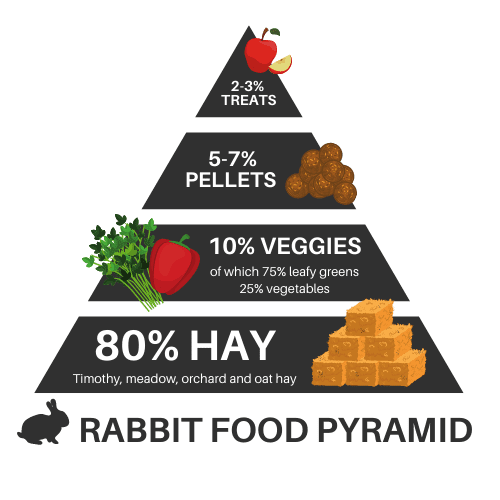Can Rabbits Eat Marigolds? Here is our advice.
A rabbit’s ideal diet should consist of hay, vegetables, and some pellets. Fiber is the core nutrient for rabbit food. But, not every fiber-rich meal is ideal for your furry pet.
It’s no news that rabbits love foliage. They’ll ravage your garden (or worse, your neighbor’s) in search of green leaves to consume. (We don’t recommend outdoor for rabbits).
If there are marigolds in your garden, you may be wondering if rabbits can eat them and destroy your garden.
Here’s the big answer:
Can Rabbits Eat Marigolds? Rabbits can eat marigolds. Wild rabbits, in particular, will eat every part of the marigold plant, from the foliage to the stem.
Rabbits eat a variety of flowering plants; marigold is one of them. But, marigold is also on the list of toxic fibers that rabbits should not consume. But, it all depends on the variety.

Types Of Marigold Rabbits Cannot Eat
As mentioned earlier, all the varieties of marigolds are of two categories. There are edible and inedible varieties. In total, marigold has about 50 different varieties. Yet, the only one proven to be completely safe for your rabbit is the pot marigold.
There are other names for pot marigolds. these names include the following:
- Calendula Officinalis
- Pot marigold
- Ruddles
- Scotch marigold
- Mary’s gold
- Common marigolds
This variety possesses vibrant-colored flowers including yellow, peach, and orange. A single plant can grow up to 24 inches tall. Bloom season for pot marigolds is from early summer through fall.
Rabbits can consume pot marigolds to their fill without any repercussion.
Types Of Marigold Rabbits Can Eat
Some toxic marigold varieties have a repulsive smell that keeps the rabbits away. The others have a normal smell.
The varieties below can cause pain and gastrointestinal disruption for rabbits. Remove them from your rabbit’s diet. If possible, remove them completely from your garden so your rabbits do not consume them.
- French marigolds
- Marsh marigolds
- Mexican marigolds
- African marigolds
Your rabbit will avoid French and African marigolds because of their pungent smell. These varieties look smaller than regular marigolds. But, their vibrant yellow, red, or orange flowers make them perfect as flowers.
These marigolds won’t kill your bunny. But, they will cause them a good deal of stomach pain and skin irritation for a long period.
The tiny yellow flowers of the marsh marigold may appear succulent and inviting. But, they are bad news for both humans and rabbits alike.
Protoanemonin is the primary component of marsh marigolds. When touched, this component can trigger skin irritability. Eating this plant would cause lesions and convulsions.
How To Prepare Marigolds For Rabbits
You can have an all-year-round supply of marigolds, but unfortunately, they may not be fresh. You can store marigolds by drying and grinding their leaves and stem. Ensure you do not grind them to dust.
You can scatter this rough foliage for them as occasional treats. Or you can serve them with other fresh vegetables.
Rabbits prefer to scavenge for their own meal. They would prefer if you let them feed from the garden. But if you let them do this, they would destroy other plants in your garden.
If your bunnies live in a hutch, you could harvest as much marigold as necessary and bring it to them.
You could devote a fenced section of your garden to marigolds and let them run around as much as they want to.
What Happens If My Rabbit Eats Too Much Marigold?

Even safe marigolds can pose a threat if your rabbits eat them in large quantities. Below are some of the risks involved when you allow your rabbits to eat too many marigolds:
Bloated stomach
If a rabbit eats too many marigolds, it may experience digestive problems. These problems may include diarrhea or bloating, decreased immune systems, and weakness. These problems can lead to a range of health issues.
Stomach bloating can be a serious health issue for rabbits. If you ignore it, it could further develop into serious complications. It is important to consult with a veterinarian if a rabbit is experiencing bloating.
Uneaten cecotropes
Cecotropes are small, soft, and odorous feces that rabbits produce. These cecotropes are an important part of their diet. The cecum is a part of the rabbit’s digestive system. You can find the cecum between the small intestine and the colon.
Cecotropes contain a high concentration of nutrients. These nutrients are essential for maintaining a rabbit’s health. They are high in fiber, protein, and other essential nutrients. Cecotropes help to keep the rabbit’s digestive system functioning.
Diarrhea
Excessive intake of marigolds can cause diarrhea-loose or watery stools. Diarrhea can be a serious issue in rabbits as it can lead to dehydration and weight loss.
A change in diet will cause diarrhea in rabbits. When the rabbits consume this new meal in excess, it could worsen their condition. It could even trigger some underlying conditions to surface.
Gastrointestinal stasis
Eating too many marigolds can cause gastrointestinal stasis. It is a serious condition that affects the digestive system of rabbits.
Symptoms of gastrointestinal stasis in rabbits may include the following:
- Reduced appetite
- Weight loss
- Lethargy
- Bloating.
If left untreated, gastrointestinal stasis can lead to serious complications. Liver damage and infections are the major possible complications of gastrointestinal stasis.
You could take the rabbit to a clinic so that a vet can diagnose and treat the stasis.
But, you can save yourself a trip to the vet. You should regulate your rabbit’s diet with some extra hay, pellets, and other veggies.
Does Marigold Have Any Health Benefits For My Rabbit?
Marigold is a healthy food for bunnies. It contains a large amount of nutritional and health benefits for consumers.
Marigolds can provide your rabbit with an extensive amount of fiber. The fiber helps them maintain healthy teeth and bone structure.
The carotenes and carotenoids present in marigolds will keep your pet’s eyes healthy. Lycopene is another common compound found in marigolds. It helps to reduce the possibility of cardiovascular problems for your bunnies.
Marigold can also serve as a natural antibiotic. An antibiotic supports the immune systems of these rabbits. The marigolds can also help with digestive problems. They can also help sick rabbits eat better.
Tips For Introducing Marigolds To My Rabbit’s Diet
Marigold might be a safe meal for your bunny. But if they’ve never had it before, you should develop a good plan to introduce it into their diet. This way they would not detest it.
You should first start with small helpings. Then, watch how well they chew it up compared to their other meals and how their guts react to new food.
If you notice they like it, then you can include more of it in their meals till you can serve it as an independent meal.
Do Rabbits Even Like Marigolds?
Rabbits, like humans, have food preferences. So, it should not be a surprise if your rabbits completely ignore the marigolds you place before them. If there’s no other option for the rabbit, it would have no other choice than to consume the marigolds.
Most rabbits would prefer the petals of the plant to the other plants. If your rabbit does too, you should include more of this.
Setting up a fence around your marigold garden can help prevent rabbits from getting in. Or, you could plant the repellent varieties so the rabbits can stay away by themselves. The downside is that some rabbits would go ahead to consume these toxic varieties anyway.
Can Marigolds Be The Sole Diet For My Rabbit?
While marigold flowers may be attractive to rabbits. They can provide some minimal nutritional value. But, they are not a substitute for a well-balanced diet.
It is important to remember that rabbits have sensitive digestive systems. They can become sick if their diet is not balanced.
Marigolds contain a rich amount of carotenes and carotenoids. These two compounds are essential components of rabbit feed. Carotene in particular is a wonderful source of vitamin A for your rabbit.
But, these nutrients are not enough to serve as a complete balanced diet for the bunnies.
Marigold for rabbits: pros and cons
Marigolds are safe for rabbit consumption. Yet, this is not to say that there are no pros and cons attached.
Pros
- Marigold contains beta carotene which brightens the eyes
- Marigold can support your bunny’s heart and immune system
- Marigolds are accessible.
- 90% of rabbits love them
Cons
- Some marigolds can be toxic and quite harmful.
- Excessive intake has harmful consequences
- In a quest for marigolds, rabbits can destroy your entire garden
FAQs
Does Marigold grow all year round?
It can be grown as either an annual plant or a perennial. Your rabbit can have an all-year-round supply of marigolds.
Can Humans consume marigolds as well?
A marigold can either be an edible vegetable or an ornamental flower. Native treaters squash the foliage to form medicinal herbal sauces. These sauces can cure foot cancer, skin disease, and some inflammatory problems. Marigold is also an excellent addition to soups, sauces, and salads.
How fast does a rabbit digest marigold?
A rabbit can digest their marigold meal after about 6 hours. The alimentary canal of an adult rabbit is about 4-5m long. Rabbits have a recorded gi speed of 19 hours. They can also chew food at a super fast rate.
Alternative plants for my rabbit asides from marigolds
Here’s a list of alternative plants that you can serve alongside some marigolds:
Rose ; daisy; petunia; dandelions; sunflower; clover; chickweed; pansies; cornflower; dahlia; lavender.
How long does it take the rabbit to poop after eating a marigold?
Marigold has high fiber content. So, it could take as much as 6-7 hours after consumption for a rabbit to produce hard waste. The cecotropes usually follow about four after the excretion.
Conclusion
Can Rabbits Eat Marigolds? Marigold is a wonderful inclusion to your bunny’s diet. None of the varieties can cause the death of a rabbit upon consumption. But, the toxic varieties can trigger many adverse effects for the rabbits.
Marigold also comes with health benefits that can boost your bunny’s well-being. The ideal method to feed marigolds to your rabbits is to let them eat them only as treats. This way, they are more likely to enjoy a balanced diet.